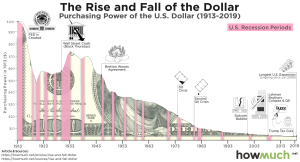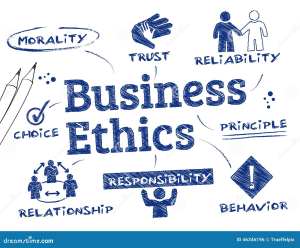Entrepreneurialism has emerged as a defining characteristic of the American working landscape, reshaping how individuals engage with their careers and economic aspirations. In the enlightening book “Make Your Own Job,” Erik Baker illuminates the evolution of this phenomenon, highlighting how the allure of self-made success has captivated millions. As freelance work trends become increasingly prevalent, individuals are redefining traditional job roles, embodying the spirit of entrepreneurialism as they attempt to take control of their destinies. The ongoing working culture shift reflects a broader societal desire to forge paths dictated by personal passion rather than conventional employment. With an increasing array of tools and resources at their fingertips, Americans are eager to embrace entrepreneurialism in its varied forms, from solopreneurs to gig economy participants, infusing their lives with creativity and ambition.
The rise of entrepreneurship has fundamentally altered the landscape of work in America, creating a dynamic space where individuals pursue their passions and cultivate personal brands. This shift towards autonomy in professional environments is fueled by the desire for meaningful engagement, leading to trends that prioritize freelance opportunities and gig roles. The concept of ‘creating one’s own job’ resonates deeply with those disillusioned by traditional employment frameworks, allowing them to explore alternative career pathways. As more people adopt entrepreneurial mindsets, the proliferation of self-initiated ventures continues to reshape expectations and aspirations across various industries. This cultural transformation indicates a significant departure from the past, where conventional job roles defined success, moving towards a future where personal fulfillment and innovation take center stage.
The Rise of American Entrepreneurialism
American entrepreneurialism has evolved significantly since the end of the 19th century, shaped by social and economic changes that demanded adaptability from the workforce. Erik Baker’s exploration in “Make Your Own Job” highlights the transition from a traditional work ethic centered around industriousness to a more dynamic, entrepreneurial mindset. This shift emerged as the industrial landscape changed, leading to technological unemployment and a reevaluation of what it means to be employed. As jobs became scarcer due to automation and structural changes in the economy, the call for individuals to create their own opportunities gained momentum.
In earlier eras, being entrepreneurial was often synonymous with founding businesses or achieving economic success; however, Baker delineates a broader definition that includes various roles, such as freelance workers and creative influencers. This changing landscape reflects a culture that values innovation and self-direction. Ultimately, American entrepreneurialism has fostered a deeper understanding of individual potential, pushing people to seek personal fulfillment through their careers.
Freelance Work Trends in Today’s Economy
Today’s economy witnesses a surge in freelance work, reflecting a significant shift in the traditional employment paradigm. As technological advancements facilitate remote work and the gig economy expands, more individuals are opting to pursue freelance opportunities. Erik Baker’s narrative in “Make Your Own Job” emphasizes that this trend isn’t merely a response to economic necessities but also a reflection of people’s desires for autonomy and flexibility in their careers. Freelancers often embrace these roles as a way to express their creativity and carve out niches that align with their personal interests.
The rise of freelance work trends also demonstrates the changing values within working culture, where stability and job security have given way to innovation and risk-taking. However, this transition is not without its challenges. Freelancers confront instability and the constant pressure to market themselves, leading to a culture where relaxation feels elusive. As Baker discusses, while the allure of freelance work includes the freedom to define one’s career path, it also perpetuates anxiety around job security and the relentless pursuit of success.
Making Your Own Job: A Cultural Mantra
The concept of ‘Make Your Own Job’ epitomizes the cultural shift towards personal agency in the workforce. Derived from the entrepreneurial spirit, this mantra encourages individuals not just to seek employment but to invent their own roles based on unique skills and passions. Erik Baker traces this ideology back to early self-help literature that urged individuals to take control of their destinies. In doing so, they were not just filling a job role but creating meaningful work that reflected their identity and aspirations.
This approach resonates with a diverse audience, fostering an inclusive understanding of who may identify as an entrepreneur. From those starting their own businesses to creatives building brands around their interests, the relevance of making one’s own job has never been more pertinent. By embracing this ethos, workers can better navigate the contemporary landscape of shifting jobs and redefine success on their own terms, aligning their work with personal values.
Erik Baker’s Insights on Work Culture
Erik Baker’s investigation into American work culture reveals the profound ways entrepreneurialism has transformed individual expectations and experiences. By examining historical trends, Baker highlights how the shift from traditional employment to a more entrepreneurial approach fosters both opportunity and anxiety. His insights illustrate that while people are more empowered to pursue careers aligned with their passions, they also face the pressure to continuously innovate and adapt in an uncertain economic climate.
This tension between opportunity and pressure is central to Baker’s narrative and resonates deeply within today’s workforce. The notion of being constantly vigilant and driven can lead to feelings of inadequacy and burnout, as the line between personal fulfillment and occupational stress blurs. Baker encourages readers to reflect on the broader implications of these feelings, underscoring the importance of balancing ambition with well-being in an increasingly entrepreneurial world.
The Historical Context of American Work Trends
Understanding the historical context of American work trends is crucial in appreciating how entrepreneurialism took root. Baker points out that the late 1800s marked a pivotal time in American history, where the end of the first industrialization era prompted significant changes in labor dynamics. As job opportunities dwindled due to mechanization, the societal embrace of entrepreneurialism became not just a remedy for economic hardship but a cultural transformation that encouraged individual initiative.
This historical lens reveals that the ethos of entrepreneurialism is not merely a passing trend; it is deeply ingrained in the American spirit, encouraging generations to continually innovate and seek personal relevance within their work. Through a reflective understanding of these shifts, modern professionals can better navigate the landscape of work today, recognizing the ongoing implications of these historical transformations on their careers.
The Role of Technological Change in Employment
Technological changes have historically shaped and influenced employment dynamics, and Baker’s work elucidates this relationship. As automation and digital advancements continue to evolve, they have significantly impacted job availability and the skills required within the workforce. Many roles have become obsolete, prompting a shift towards entrepreneurial efforts as individuals adapt to the new reality where technology drives job creation.
Moreover, technological advancements have birthed new career avenues that were nonexistent a few decades ago, including remote work, freelancing, and digital entrepreneurship. This transformation underscores the necessity for ongoing adaptation and skill development, which shapes how individuals perceive their roles in the workforce. Baker’s insights into this interplay between technology and employment emphasize the importance of resilience and innovation as essential attributes for success in today’s evolving economic climate.
Women and Entrepreneurialism: Breaking Barriers
Women have played a vital role in the evolution of American entrepreneurialism, particularly as the workforce landscape shifted. Baker highlights how entrepreneurialism served as a refuge for women, especially those facing employment discrimination. Historical references to self-help literature aimed at women indicate a broader cultural push encouraging them to assert their agency in the workforce and create opportunities, thereby breaking down barriers in various professional domains.
This burgeoning spirit of self-entrepreneurship among women reflects a significant societal change—shifting perceptions about female capabilities in leadership and business ownership. The ripple effects of this shift can be seen in today’s entrepreneurial ecosystem, where women continue to thrive as innovators and business leaders, embracing the mantra of making their own jobs while inspiring new generations to follow suit.
The Impact of Economic Stress on Entrepreneurialism
Economic stress often catalyzes increased entrepreneurial activity, and Baker’s analysis underscores this relationship throughout American history. During times of economic hardship, such as the Great Depression, individuals found solace in taking on freelance roles, turning to their creativity and adaptability as means for survival. This dynamic showcases how challenging economic conditions can drive innovation and entrepreneurial spirit as individuals seek to regain control over their financial futures.
Baker’s insights shed light on how economic stress alters the perception of work within society, whereby individuals view entrepreneurship not merely as a business venture but as a necessary avenue for resilience. This pattern remains evident today, as uncertainty in job markets fuels a surge in freelance work and gig opportunities. Understanding this connection emphasizes the resilience embedded in American entrepreneurialism, showcasing how individuals continuously seek to navigate economic challenges.”}]},{
Frequently Asked Questions
What are the key aspects of American entrepreneurialism as explored in Erik Baker’s ‘Make Your Own Job’?
Erik Baker’s ‘Make Your Own Job’ emphasizes that American entrepreneurialism reshapes our work relationships by promoting the idea of ‘making your own job’ through individual initiative and personal branding. Baker outlines how this mindset emerges from structural changes in the economy where traditional jobs decline, pushing individuals toward freelance and entrepreneurial roles that offer more autonomy but also demand continuous ambition.
How has the rise in freelance work trends influenced American entrepreneurialism?
The rise in freelance work trends has significantly influenced American entrepreneurialism by allowing more individuals to embrace flexible working arrangements. This shift reflects a larger culture of entrepreneurialism where people are encouraged to leverage their unique skills and turn their passions into income sources, leading to a diversified workforce that values creativity and independence.
What does the phrase ‘Make Your Own Job’ signify within the context of modern entrepreneurialism?
In the context of modern entrepreneurialism, ‘Make Your Own Job’ signifies a cultural shift towards self-employment and entrepreneurial thinking. This phrase encapsulates the idea that individuals should seek opportunities to create their own paths in life and work, leveraging their skills and experiences to establish meaningful careers in an evolving job market.
How does Erik Baker link working culture shifts to American entrepreneurialism?
Erik Baker links working culture shifts to American entrepreneurialism by demonstrating how economic pressures and technological advancements have altered traditional employment paradigms. He argues that as jobs have become less stable, more people adopt an entrepreneurial mindset, viewing work as an opportunity for personal fulfillment rather than merely a means for financial stability.
What impact has entrepreneurialism had on the perception of work in American society?
Entrepreneurialism has significantly altered the perception of work in American society, transforming it from a fixed, obligation-based role to one defined by personal fulfillment and innovation. As Baker highlights, this shift encourages individuals to view their careers as entrepreneurial ventures, where success is defined by creativity and the ability to adapt, often leading to a more anxious yet dynamic workforce.
| Key Point | Description |
|---|---|
| Rise of Entrepreneurialism | There is a growing trend of individuals identifying as entrepreneurs, including those like ride-share drivers, influencers, and more. |
| Historical Context | The shift towards entrepreneurialism began post-19th century due to technological advancements that reduced the need for factory labor. |
| Shift in Work Ethic | The focus moved from hard work to leveraging personal skills and ambitions to create one’s own job. |
| Impact of Economic Stress | Entrepreneurialism often surges during economic downturns, as individuals look for alternative job opportunities. |
| Popularity and Cultural Studies | Entrepreneurialism became popular in various fields and is often discussed in self-help literature. |
| Technological Job Displacement | Fear of being replaced by technology has led to more individuals identifying as entrepreneurs in freelance roles. |
| Anxiety and the Future | The pressure of constant risk and the potential for failure makes it challenging for individuals to find peace in work. |
Summary
Entrepreneurialism is reshaping how individuals view work in contemporary society. As more people embrace the idea of creating their own opportunities, the lines between traditional employment and entrepreneurship continue to blur. This transformation, driven by economic, technological, and cultural factors, reflects a significant shift in the workforce dynamic. Despite its allure, the demands of entrepreneurialism can lead to anxiety and a persistent sense of risk, prompting individuals to constantly innovate and adapt. In summary, while entrepreneurialism offers autonomy and the potential for fulfillment, it comes with the challenge of navigating an uncertain economic landscape.




